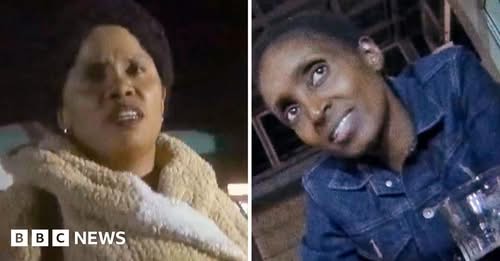
BBC denies paying interviewees in Maai Mahiu child trafficking exposé » Capital News
NAIROBI, Kenya, Aug 14 – The BBC has denied paying or coaching interviewees featured in its explosive documentary on Kenya’s child sex trade in Maai Mahiu, following allegations from the government that some accounts in the film were fabricated.
In a statement released Thursday, BBC News described the BBC Africa Eye investigation — Madams: Exposing Kenya’s Child Sex Trade — as “an important piece of public interest journalism” that documents the exploitation of children in the country’s sex trade.
“For clarity, none of the contributors featured in this film were paid, offered payment or ‘coached’ in any way,” the London headquartered broadcaster said.
“As clearly stated in the film, the survivors of abuse who were interviewed were all over 18 and recounted experiences of abuse that occurred when they were underage. We are thankful to the survivors for their brave contributions.”
The BBC expressed concern that survivors who took part in the programme were questioned by the National Police Investigations arm- Directorate of Criminal Investigations (DCI) without legal representation.
It also noted that the evidence collected during the investigation had been handed to Kenyan police in March 2025, identifying both perpetrators and victims in need of urgent help.
The denial follows remarks by Interior Cabinet Secretary Kipchumba Murkomen, who on August 13 told Parliament that police investigations had found some women in the documentary falsified their ages to fit the BBC’s narrative and qualify for what they believed was a promised foreign sponsorship programme.
“While cases of child sexual exploitation do exist, it is now apparent that the documentary failed to meet its intended purpose due to falsified information from some interviewees,” Murkomen said, responding to a question from Gilgil MP Martha Wangari.
He told lawmakers that investigators from the Anti-Human Trafficking and Child Protection Unit interviewed 14 witnesses, examined filming locations, and identified both local and foreign members of the BBC crew.
Some witnesses reportedly claimed the journalists had promised “substantial payments and lifestyle benefits” in exchange for access to girls.
Murkomen said the probe had also revealed that some women altered their identities and birth details to appear younger.
Authorities are now pursuing financial records and call data to map links in the case, while tracing several missing witnesses.
While maintaining that parts of the documentary were compromised, Murkomen acknowledged that sexual exploitation remains rampant along the Northern Corridor transport route, where prostitution is widespread and hotel access for minors poorly regulated.
He announced measures to intensify the crackdown, including victim rescues, placement in safe shelters, provision of psychosocial and medical care, and long-term rehabilitation.
“Security teams have clear instructions to take decisive action against all forms of child sexual exploitation and trafficking,” he said.
The BBC investigation has triggered heated public debate in the country on human trafficking and child exploitation with the state coming under fire for failing to tackle the vice.